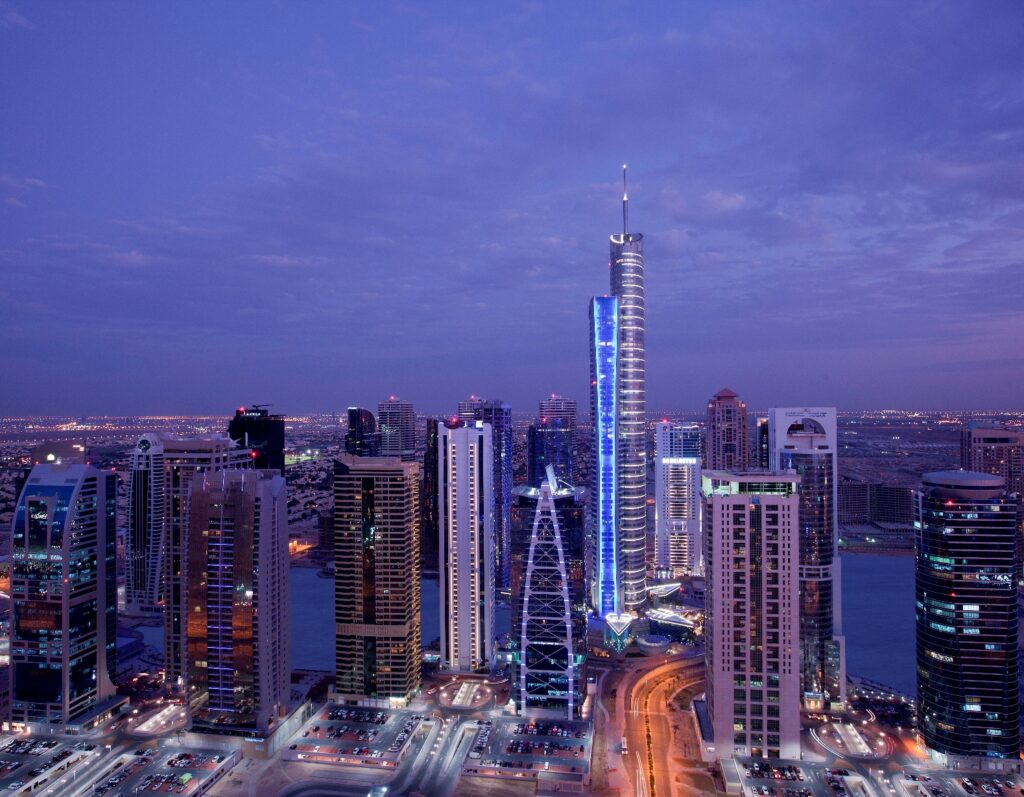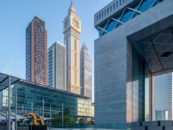As investment and trading activity in virtual and digital assets continue to grow in the Middle East, economic zone financial regulator, the Dubai Financial Services Authority (DFSA), is looking to introduce new regulation for the asset class as well as a licensing regime for virtual asset services providers in the Dubai International Financial Centre (DIFC), the regulator said in a new report.
The DFSA introduced its Investment Token regime back in October 2021, allowing for authorized financial institutions to provide financial services using tokenized digital representations of assets such as securities or derivative products. It’s now drawing up proposals for tokens not covered by the Investment Tokens regulatory framework, including cryptocurrencies, utility tokens and certain stablecoins.
The new regulation will intend to address the challenges associated with these types of virtual assets, the DFSA said, including risks relating money laundering (AML) and terrorist financing (CTF). These challenges include the use of digital assets for cross-border transactions and the lack of internationally accepted standards in trade and commerce, the need to ensure the traceability and attribution of transactions while maintaining privacy for consumers acting in good faith, technological risks, as well as the impact of decentralized activities.
The DFSA said it is currently designing controls to mitigate regulatory risks posed by these factors in cooperation with global regulatory counterparts and in concert with the federal policymaking efforts for regulating virtual assets and virtual asset services providers in the United Arab Emirates (UAE). Public consultations will be held after the release of the regulation and licensing regime proposals later this year.
The United Arab Emirates (UAE) has over 40 multidisciplinary free trade zones such as the DIFC. These areas have their own special tax, customs and import regimes and are designed to attract foreign investment.
Several of these free zones have been actively working towards establishing themselves into leading crypto and blockchain hubs. The Dubai Multi Commodities Centre (DMCC), a free zone with a focus on commodities, trade, and financial services, launched in May 2021 its DMCC Crypto Centre, an ecosystem for businesses operating in the cryptocurrency and blockchain sectors. So far, DMCC has licensed 22 virtual asset services providers, according to a government report seen by Bloomberg.

DMCC Free Zone
The Abu Dhabi Global Market (ADGM), which aims to connect the emirate with international markets in the Middle East, Africa and South and East Asian economies, introduced a comprehensive virtual asset framework back in 2018 for the trade of virtual assets by businesses. So far, six licenses have been issued.
And the DIFC, one of the Middle East’s major finance centers, is striving to become a top fintech hub and has named blockchain as a key technology it’s looking to leverage in areas including real estate, small and medium-sized enterprise (SME) financing, digital assets, smart cities, and more.
At the federal level, the government is working on a crypto licensing regime which it hopes will help bring in some of the world’s biggest crypto companies, a government official told Bloomberg in February.
The Securities and Commodities Authority is now in the final stage of amending legislation to allow virtual asset services providers to set up with the first federal licenses expected to be issued by the end of Q1 2022.
These regulatory developments have pushed a number of crypto startups to set up shop in the UAE. Last year, Binance Asia Services, the Singapore entity of crypto exchange Binance, withdrew its application for a cryptocurrency exchange license in Singapore after spending a year trying to win regulators’ approval. Instead, the company moved to Dubai after signing a deal with the Dubai World Trade Centre Authority to build a new international virtual assets hub.
The statements on the progress made by the DFSA on regulating virtual assets were featured on regulator’s Financial Crime Prevention Programme Report 2019-2021, a newly released document that sets out the DIFC’s recent actions to reduce the risks of money laundering, the financing of terrorism and proliferation.
Following recommendations made by the Financial Action Task Force (FATF), the DFSA said it has made a series of policy amendments to bring our AML/CTF and CPF framework into further alignment.
Between 2019 and 2021, the DFSA also expanded its permitted financial services activities, including new regulatory regimes to accommodate emerging and growing business models such as crowdfunding and digital payments. The financial regulator also runs the DFSA Innovation Testing Licence (ITL) Programme, which allows ITL license holders to test new and innovative financial products, services, and business models.
Since its launch in May 2017, the DFSA said it has opened seven cohorts for ITL applications and has received a total of 128 applications.








No Comments so far
Jump into a conversationNo Comments Yet!
You can be the one to start a conversation.